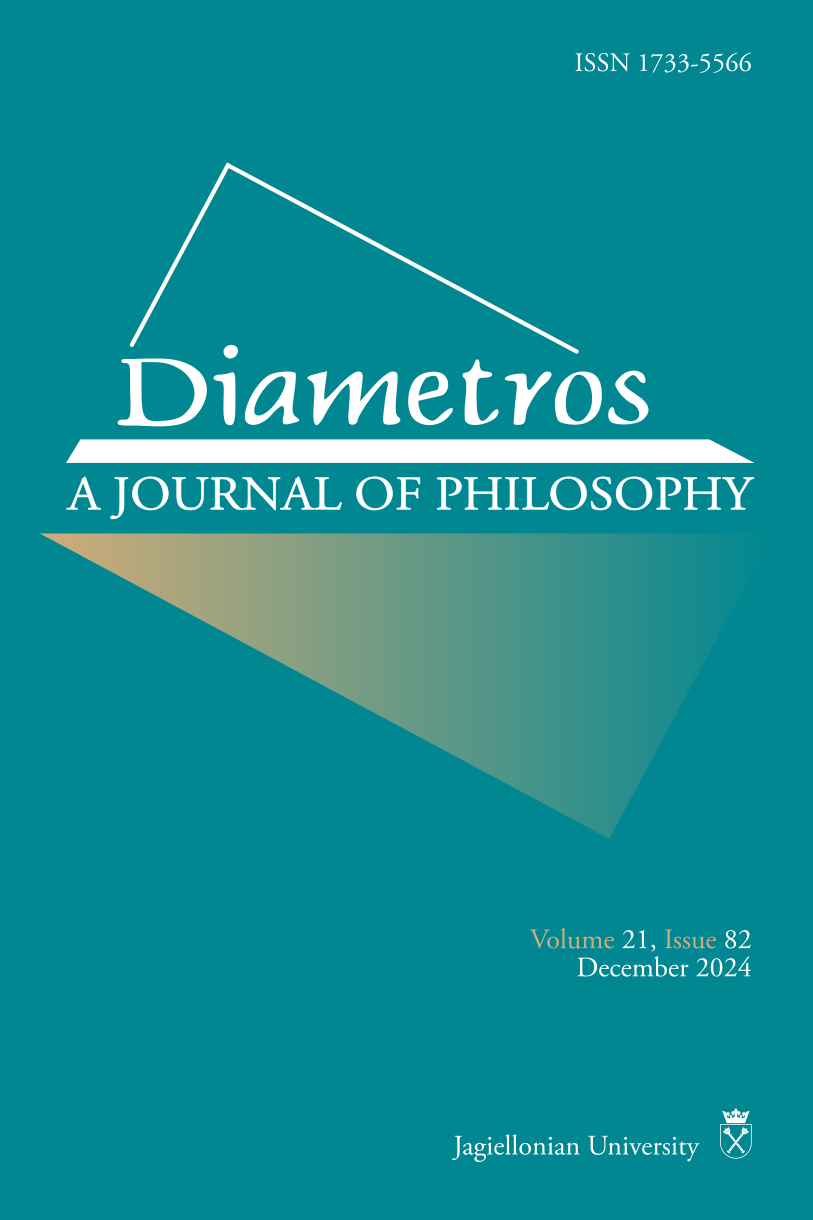Foregrounding intersectionality in public health: A commentary on Giubilini, Gur-Arie and Jamrozik
Main Article Content
Abstract
Article Details
Section

This work is licensed under a Creative Commons Attribution 4.0 International License.
By submitting his/her work to the Editorial Board, the author accepts, upon having his/her text recommended for publication, that Diametros applies the Attribution 4.0 International (CC BY 4.0) license to the works we publish. Under this license, authors agree to make articles legally available for reuse, without permission or fees. Anyone may read, download, copy, print, distribute or reuse these articles without asking prior permission from the publisher or the author, as long as the author and original source are properly cited. The author holds the copyright without any other restrictions. Full information about CC-BY: https://creativecommons.org/licenses/by/4.0/legalcode.
How to Cite
References
Bajos N., Spire A., Silberzan L. (2022a), “The social specificities of hostility toward vaccination against Covid-19 in France,” PLOS ONE 17 (1): 1-16.
Bajos N., Spire A., Silberzan L., Sireyjol A., Jusot F., Meyer L., Franck J.-E., Warszawski J., Group E. S. (2022b), “When lack of trust in the government and in scientists reinforces social inequalities in vaccination against COVID-19,” Frontiers in Public Health 10: 908152.
Giubilini, A., Gur-Arie, R., Jamrozik, E. (2025), “Expertise, Disagreement, and Trust in Vaccine Science and Policy: The Importance of Transparency in a World of Experts,” Diametros 22 (82): 7-27.
Goldenberg M. (2021), Vaccine Hesitancy: Public Trust, Expertise, and the War on Science, University of Pittsburgh Press, Pittsburgh.
Gopichandran V. (2017), “Public trust in vaccination: an analytical framework,” Indian J Med Ethics Apr-Jun 2 (2): 98-104.
Hill Collins P., Bilge S. (2020), Intersectionality, Polity Press, Cambridge.
Ingram A., Kett M., Rushton S. (2011), “Spies, vaccines and violence: fake health campaigns and the neutrality of health,” Medicine, conflict and survival 27 (2): 73-76.
Kobayashi Y., Howell C., Heinrich T., Motta M. (2022), “Investigating how historical legacies of militarized violence can motivate COVID-19 vaccine hesitancy: Evidence from global dyadic survey,” Social Science and Medicine 311.
Matthews R. (2019), “Health ethics and Indigenous ethnocide,” Bioethics 33 (7): 827-834.
McIntosh P. (2009), “White privilege and male privilege: A personal account of coming to see correspondences through work in Women’s Studies”, [in:] Privilege and Prejudice: Twenty years with the Invisible Knapsack, K. Weekes (ed), Cambridge Scholars Press, Newcastle-upon-Tyne: 7-19.
Quinn K. G., Hunt B. R., Jacobs J., Valencia J., Voisin D., Walsh J. L. (2023), “Examining the relationship between anti-black racism, community and police violence, and COVID-19 vaccination,” Behavioral Medicine (14 Aug).
Shannon G., Morgan R., Zeinali Z., Brady L., Couto M. T., Devakumar D., Eder B., Karadog O., Mukherjee M., Tourinho Peres M. F., Ryngelblum M., Sabharwal N., Schofield A., Silwane P., Singh D., Van Ryneveld M., Vilakati S., Watego C., Whyle E., Muraya K. (2022), “Intersectional insights into racism and health: not just a question of identity,” The Lancet 400: 2125-2136.
